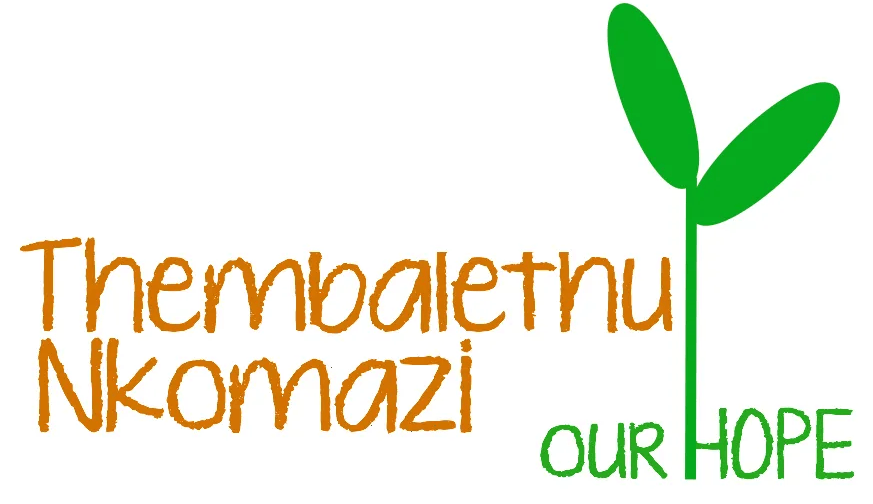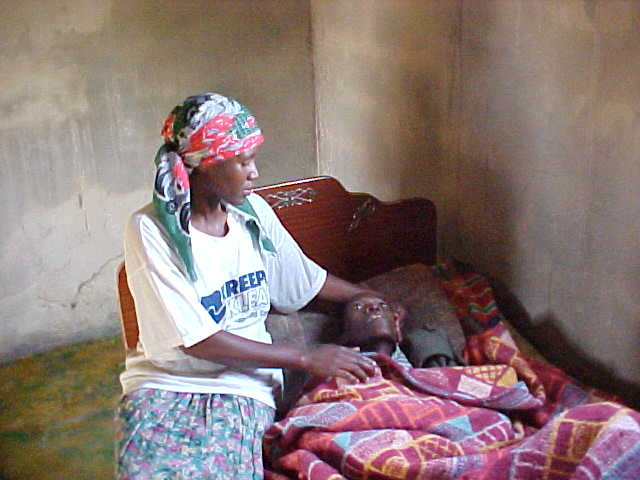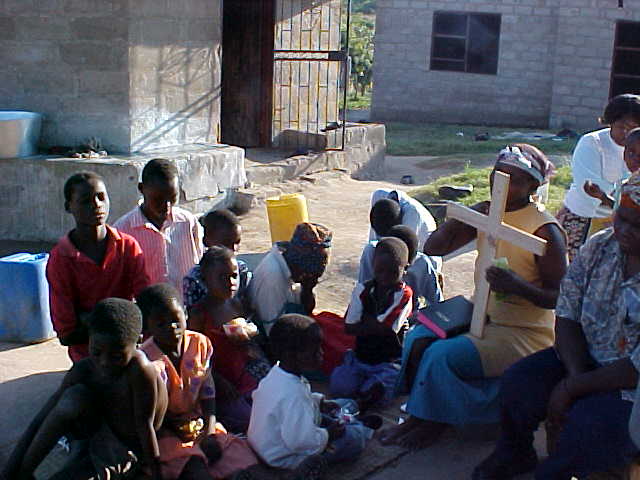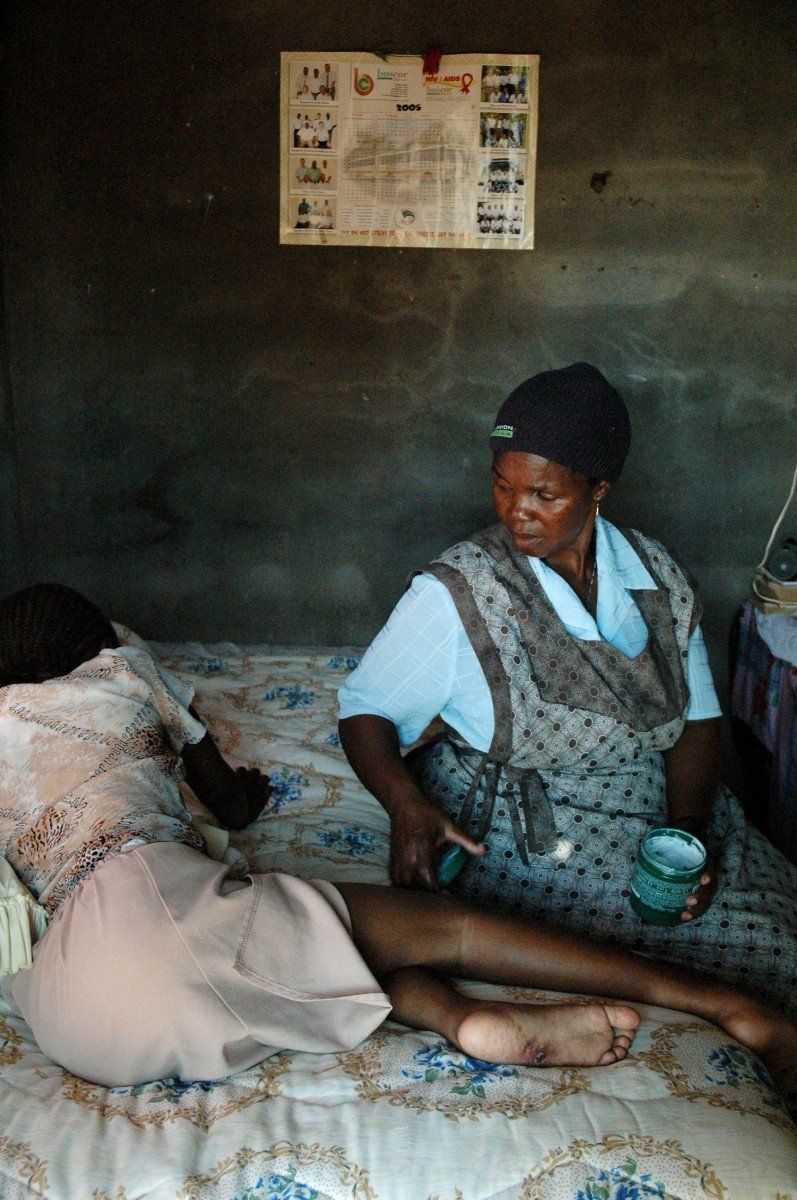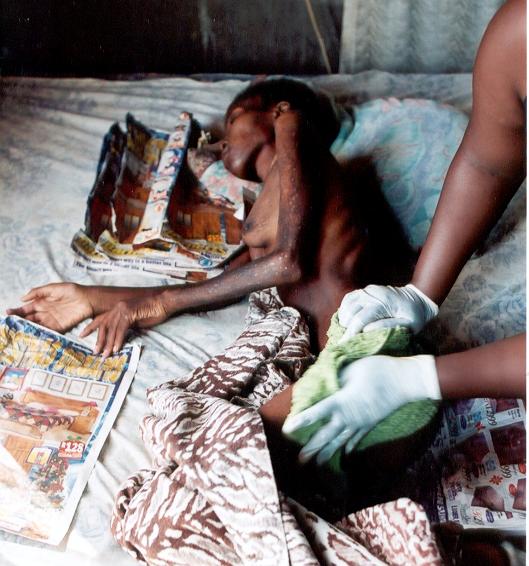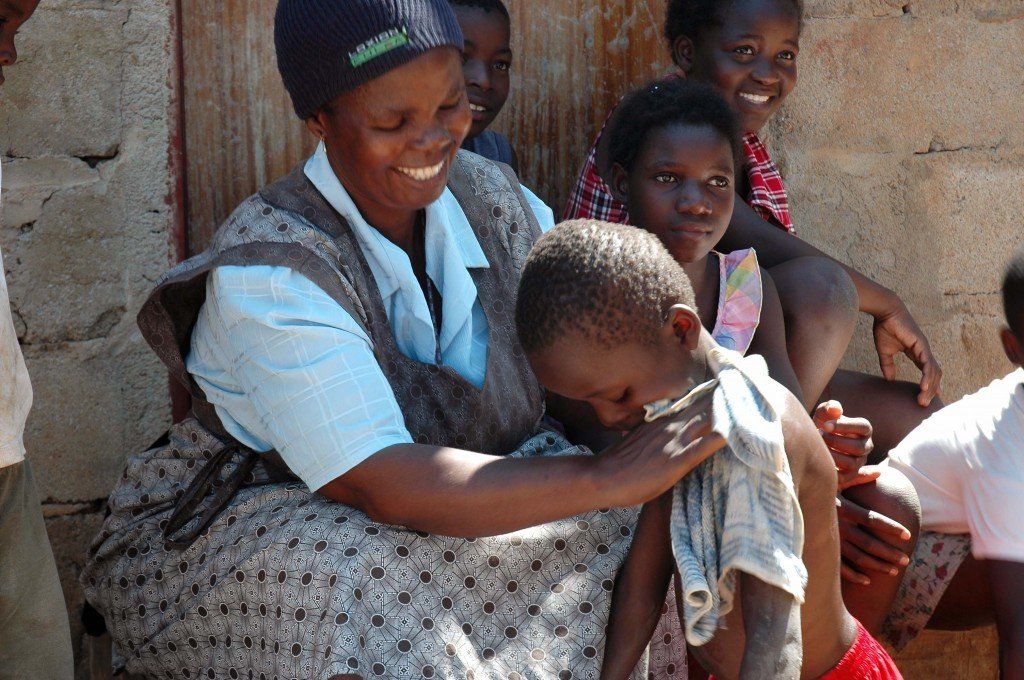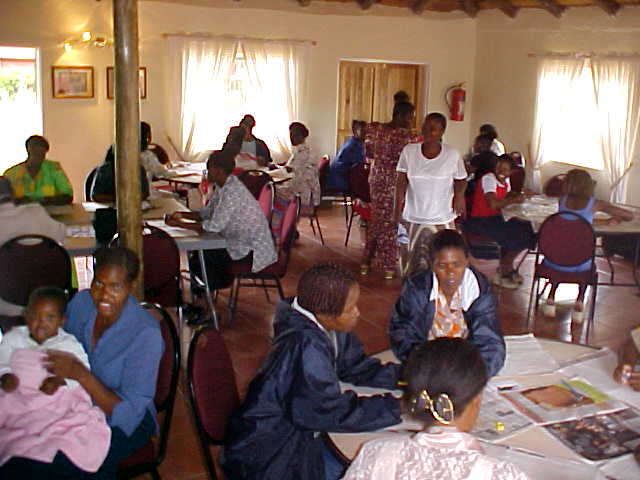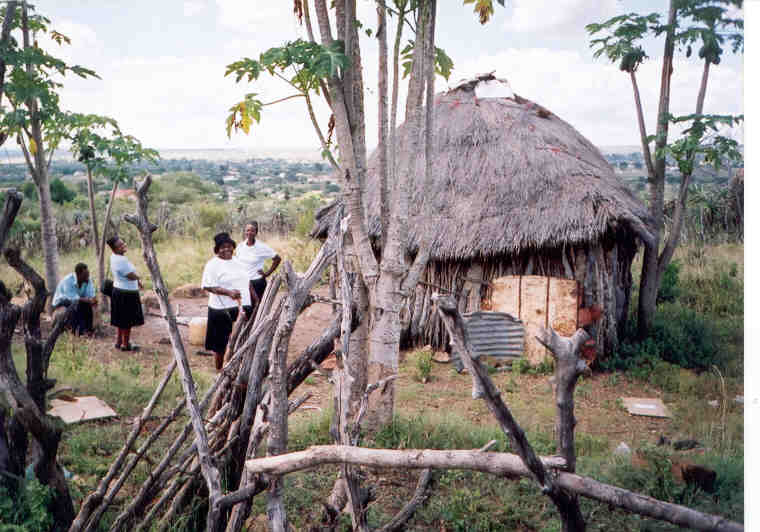2000-2002
2000-2002 in words
By the year 2000, the full impact of HIV was being felt throughout the community. At this stage, HIV had wrecked its toll and many people who had been infected during the early to late 1990′s were succumbing to the illness – AIDS.
During 2001, dedicated women selflessly walked from house to house, over rough terrain in hot sun or pouring rain, seeking out people who were lying sick and dying at home. However at the end of 2001, the results of an in-situ survey that we conducted, confirmed the need to adopt a “holistic approach” to the impact that HIV and AIDS and poverty was having on our communities. Care-supporters found that they couldn’t operate in an environment where they were tending to patients and then having to leave a home with no income and no food. Care-supporters had to share their own meager supplies with their patients and this was stretching the capacity of the community beyond breaking point.
Here are some of their stories.
Thus, Thembalethu’s strategy to adopt a holistic approach to the emerging situation was developed in response to the needs identified by our team of care-supporters who work and live in the villages where the reality of AIDS is truly felt. We responded by introducing services that were focused on addressing broader community needs such as sustainable food programs, care for children at risk, skills development and income generating projects, youth empowerment and psycho-social counselling.
We started 2002 under acute pressure as our funding for food distribution came to an end and other promised funding was delayed. This caused much hardship for us all. It was extremely difficult to face those who had become dependent on the program. However, this difficulty forced us to explore alternative methods of feeding and through our research we identified Powermeal – a fortified mealie-meal supplement – which enabled us to offer an economical good quality nutritional food.
To stave off starvation we also started with our home food garden project whereby one garden was sustaining between 8 -10 people often with surplus for selling in the local market.
Management Summary
Want to learn more about our organisation in the years 2000-2002? We have summarised it in a pdf-file that you can download by clicking on the button. In this summary, you can find information about:
- Which needs we identified in our community
- The actions we have taken
- Facts and figures
- And more!
Contact us
Address: Zakhele Training Centre, R570, Schoemansdal, 1331, South Africa
Phone: +27 (0)13 781 0259
Email: s.mckibbin@thembalethunkomazi.org
All rights reserved | Thembalethu Nkomazi © 2021
